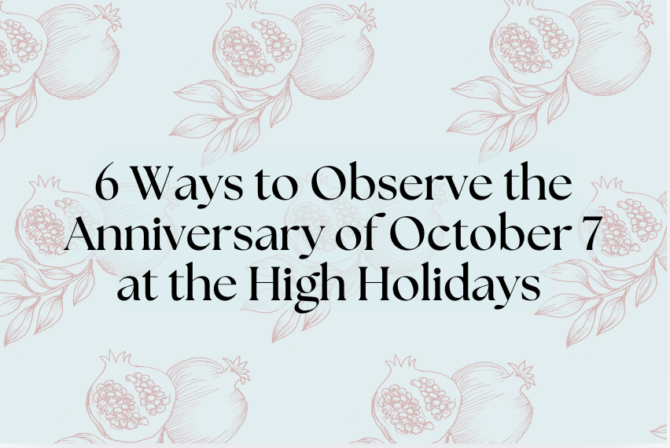“Hold your babies tight tonight.” If you’re in enough mamas’ groups on Facebook, you probably see a post like this every few weeks. Usually it’s about someone’s relative or best friend who tragically lost her young child to something awful, like cancer.
Seeing these posts makes me appreciate what I have. Of course it does. I’m grateful that my children are here and healthy, and dumping out Legos, screaming at each other, and pestering me for ice cream at 7:30 a.m. But (as you might be able to tell), I’m still keepin’ it real. I’m still not aspiring to #cherisheverymoment, because I know that it’s OK to have those days when you’re ready for your first glass of wine well before 5 o’clock anywhere.
But this time, with the phrase tied to the Trump administration’s abhorrent plan to separate migrant children from their parents at the U.S.-Mexico border, I find myself truly heeding those words. I feel myself physically, literally — in the actual, literal, dictionary definition of the word — holding my children tighter. That’s because other moms — moms in this country — are having their children physically, LITERALLY ripped from their arms. And, as a Jew, I feel that deeply.
Recently, my grandmother, a Holocaust survivor, shared a memory with me. “Do you want to hear a true story that I made up?” she asked.
“Um…sure?” I replied.
She told me how, when her family — her mother, father, brother and sister — exited the cattle car at a Nazi concentration camp, Josef Mengele was there, telling some people to go to the right (turns out, to the camp) and some people to go to the left (turns out, to the gas chamber). He indicated to my grandmother and her sister to go to the right. For the others, the left. My great-grandmother said, “No, I need to go with my daughters.” A guard hit her across the face with the butt end of his rifle, and by sheer fate she fell to the right. She rose, and no one noticed or objected.
They started walking their separate ways — now the girls and their mother to the left, and the males (I won’t say boys, because my great-grandfather was a man; I won’t say men, because my great-uncle was 12) to the right. But my grandmother ran back and gave her father one last hug goodbye. She never saw her father or brother again.
That’s the story my grandmother always remembered from that day. But now, at 89 years old, she realizes that there’s no way it could have happened like that. Yes, it’s true Mengele separated the seemingly strong from the seemingly weak; yes, her mother objected and was hit in the face; yes, she wound up being able to go with her daughters. But the guards never would have let my grandmother give a farewell hug to her family.
My grandmother, born in Czechoslovakia, is far from a flawless English speaker. But in this case, she said what she meant perfectly: “A true story that I made up.” This story — of her final goodbye to her father — was her truth for her entire life. It’s what she needed to tell herself to survive, because the facts — that people in positions of power could be so heartless as to not let a parent and child say goodbye — were too much to bear. It was her truth, but it was a lie.
What truths, and what lies, are these children and parents at the border experiencing? We know the horrible lies that the parents at the border are being told; guards falsely saying, “I just need to take your child for a bath,” and never returning. Never letting them say goodbye. And we know the truth they’re learning, that people in positions of power seemingly have a limitless capacity for heartlessness. What lies will these children have to tell themselves to cope with their reality? What psychological traumas will these children be left with?
For those of us removed from the situation, who have the luxury of practicing self-care, it seems like we’re constantly bombarded by real-life examples of human nature at its worst. For a lot of us, it’s overwhelming, and yet we can’t look away — and that can lead to a feeling of paralysis. But, as Dahlia Lithwick writes in Slate, “Most of the women I know are as heartsick about the obscene actions taking place at the borders as I am. I think a year ago we would have been out on the streets, were the government stealing the children of asylum-seekers and refugees and sending them halfway across the country or stacking them up like lumber in detention facilities. But today, I worry, we are horrified but numb. We want to be told what to do.”
Yes, we can tell ourselves that it’s OK to “sit this one out,” as I sometimes say about whatever latest atrocity is in the news. But we need to check our privilege and see these families as they are: just like us. We need to recall the fear and despair that our ancestors and relatives must have felt in Pharaoh’s Egypt, and in Ferdinand’s Spain, and in Hitler’s Europe. We didn’t have the luxury of “sitting out” the horrors then — and we shouldn’t sit it out now.
We, as Jews, must tap into our collective history. Tikkun olam is a call to action. We have to hear the primal scream of the mothers at the border — this “liget” that a mother belts when her child is being taken from her. We have to amplify it with family history — like the scream a great-grandmother must have felt on the inside, even as she was saying, “I need to go with my daughters.” We have to fuel it with the screams of our oppressed people throughout time and space. And finally, we have to channel that scream into action.
My grandmother used the story she told herself to cope with the impossible reality of the Holocaust, and of being separated from her family. We are now surrounded by the cruel lies that those in positions of power tell us. But as Jewish women, we viscerally feel the pain and the horror of children being torn away, of not knowing where they are or what is going to happen to them.
We cannot “sit this one out,” or tell ourselves the lies we need to hear in order to move on with our days. We must fight back against this ugliness with our voices, our donations, and our votes. Because we KNOW the truth. And we have the ability — and the obligation — to resist the lies and speak out on behalf of these families being torn apart.







